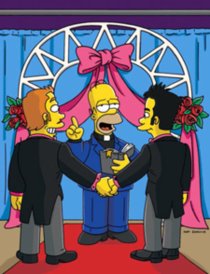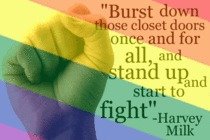 Lena Horne, whose beauty and talent – and race – helped pave the way for future generations of African American stars, died Sunday night at Manhattan's New York-Presbyterian/Weill Cornell hospital, reports The New York Times. She was 92 and had been in failing health the past few months.
Lena Horne, whose beauty and talent – and race – helped pave the way for future generations of African American stars, died Sunday night at Manhattan's New York-Presbyterian/Weill Cornell hospital, reports The New York Times. She was 92 and had been in failing health the past few months.As she recounted in her successful, Tony-winning 1981 one-woman Broadway show, Lena Horne: The Lady and Her Music, the star – MGM's first leading actress of color, though she was often relegated to secondary scenes that could be edited out of movies when shown Down South – was born in Brooklyn and rose from the nightclub chorus to the rank of headliner, starting at Harlem's Cotton Club. Once West, her films included 1943's all-black screen musicals Cabin in the Sky and Stormy Weather (the latter's title song became her anthem), though she was denied the role she long coveted: the mulatto saloon singer Julie in MGM's 1950 Show Boat, which instead went to her friend Ava Gardner.
In the end, Hollywood simply wasn't really ready for a beauty of color. Though she never played a maid, Horne was also denied leading-lady roles. "They believed that audiences weren't ready," she told PEOPLE in 2005, referring to the Hollywood studios. "They didn't know what to do with me. So they did nothing."
By the mid-1950s, Horne – who in 1947 married composer and musical director Lennie Hayton in a secret wedding in Paris, because interracial marriages were illegal in California – left Hollywood, "bitter," she said, "at the whole Hollywood system," and went on to tremendous success as a stage actress and consummate jazz singer.
Hayton and she "went all over the world," Horne said in 1981. "We were the chic, to-be-seen-with couple. But I always had a wall up around me. I wasn't going to let anybody in. Part of it goes back to my childhood. My parents separated when I was 3, and later my mother, an actress, took me from our home in Brooklyn and was always leaving me with different people in the South. I never let myself love anybody because I knew I couldn't stay around."
Not until the middle 1950s did Horne begin to mellow. "When I stopped trying to break the barriers, that's when I looked around and saw white people, a lot of good white people who would hold hands with their colored sisters," she said. "I also saw that there are many people who aren't black who get kicked around too. I saw that and I softened up."
Widowed in 1971, Horne moved to New York City and continued her stage and concert work, and even did the occasional movie role, including that of Diana Ross's fairy godmother in the 1978 The Wiz. Of her early life in Hollywood, "I was a test case," she told PEOPLE. "I could never feel like I was just a person working in movies. For MGM and the NAACP, it was always, 'Look, here is our Negro woman.' "
Besides her legion of devoted fans, Horne is survived by her daughter, Gail Lumet Buckley.










No comments:
Post a Comment